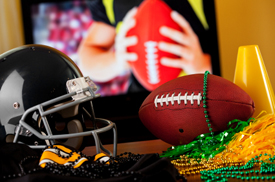Ann Fabian Ann Fabian, professor of American studies and history in the School of Arts and Sciences, studies 19th-century American cultural history. She is the author of 
Rutgers Today: In your book on American gambling, Card Sharps, Dream Books and Bucket Shops, you tried to explain the relationship between gambling and other forms of making money in the industrializing America of the 19th century. How has that relationship changed, if at all?
Fabian: The biggest change is really a simple one: the shady world of gambling became the gaming industry--an arm of the entertainment business. When I started working on that book, you could gamble in Nevada or at Atlantic City. You had to go there – across a desert or to an old resort. Of course, you could bet with friends or place bets with a friendly bookie but you didn’t have a casino around every corner. State by state lotteries came back – our own peculiar way of paying for some of the services we decided not to fund with ruthlessly cut tax dollars. The Indian Gaming Act brought us Foxwoods and dozens of small tribal casinos. You had riverboat casinos on the Mississippi and poker parlors in those old western towns like Deadwood, South Dakota. But something still set them all apart from our everyday lives.

Rutgers Today: The sports handicapping site, Pregame.com, estimates that half of American adults will bet on the Super Bowl. In the 19th century, what percentage of American adults would have been at least occasional gamblers?
Fabian: From what I learned from the sources I read – mostly autobiographies of ex-gamblers, books, sermons, and stories about gamblers and books about the shadowy life of big cities where chumps could loose their little nest eggs to scheming sharpers – it’s easier for me to tell you who people thought were likely to gamble then who actually gambled. If you bet on three-card monte or sat down to a poker game on a steamboat, you would lose your money, particularly if you were carrying a fat purse that belonged to your boss or a surprise legacy from an aged aunt. You can guess that all these stories had unhappy ends. In some sense, they seemed to be cautionary tales about how money worked. Wages were good, but money earned too fast made everyone with a good belief in luck vulnerable to the plots of scheming gamblers.
Rutgers Today: Pregame.com also estimates that $10 billion worldwide will be wagered on the Super Bowl, of which about 1 percent will be wagered in Nevada, where it's legal. What does that tell you about the state of the culture?
Fabian: It depends, I think, on where the money goes. If you bet with your friends, no matter how big the pool, the money moves around in your group. If it’s a commercial deal or some shady website, it works differently. I know only a fool bets with her heart. A wise better never does. Know the odds; bet the point spread. Is this a clue to the state of our culture or to the state of our hearts?
Rutgers Today: And finally, a slightly smart-alecky question: Are you betting on the game?
Fabian: No. I wrote this book when I was a poor and struggling graduate student and since people always asked me whether I gambled, I decided to buy a lottery ticket one day. Like everyone who buys a lottery ticket, I spent a few happy hours sure my life would change. I was betting on a happy future. We all bet in odd ways. I know some of my friends are betting as fans or betting for fun (like Andrew Cuomo and Deval Patrick) or betting on sophisticated versions of the point spread, cut by quarters or by minutes. I am just going to eat good food and watch the game and hope the Giants will win.
Media Contact: Ken Branson
732-932-7084, ext. 633
E-mail: kbranson@ur.rutgers.edu


